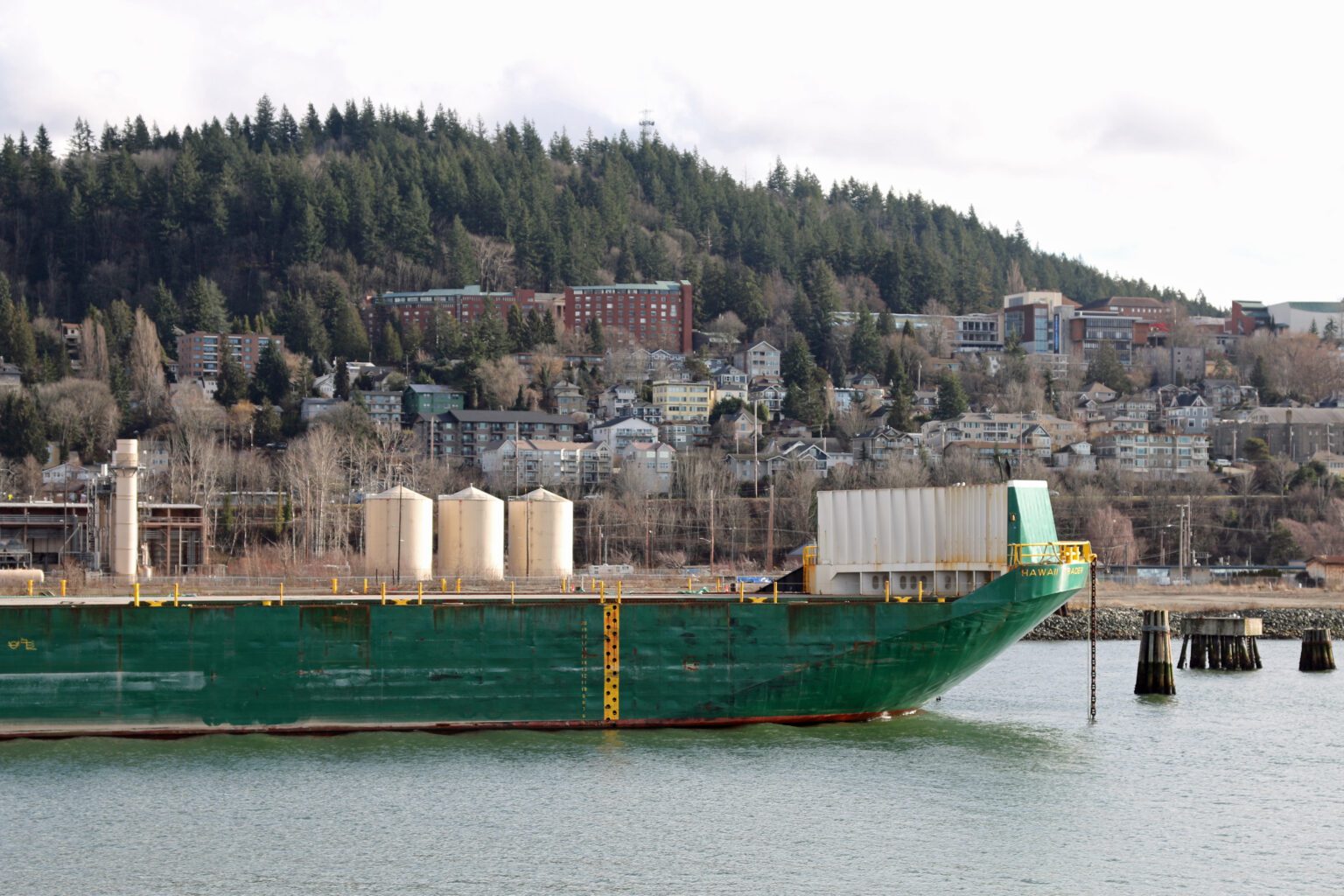Honestly, some of us just wanted to ride the gondola.
It didn’t seem that much to ask: Once in their lifetime, every good taxpayer really ought to get the chance to end a lovely day on their spangly new, award-winning waterfront development and then catch a ride back up to Western Washington University. Via cable.
Proposed in 2013 and quickly abandoned, the gondola was a semi-serious idea that later became sort of a joke — a lint filter for all the derisive fluff that floated around the city after the abandonment of more than a decade of carefully assembled-and-then-roundly ignored community planning processes to remake Bellingham’s central waterfront on a contaminated former mill site.
The Gondola, as envisioned by a now laughably optimistic, imagineered notion of the 237-acre, former Georgia Pacific property, linked two iconic city features — its waterfront and its university campus — literally by steel cables and cement landings. It was a manifestation of a connection that has, for a century and a half, been quite real.
Mostly for better and sometimes for worse, Western has been part of the city’s identity all the way back to when people routinely shoveled excess salmon, and household trash, straight into the bay. That’s a lot of years and a lot of civic evolution.
Western’s looming presence on the hill has always given the ’Ham a schmear of prestige — some brain-wattage cred for a traditional fish-and-timber town.
But our city’s more-defining relationship has always been its connection to what we now call the Salish Sea. Saltwater has mixed with ’Hamster blood from the days we mined coal under present-day city streets up through last weekend when we bought Island Girl chowder from a gazebo at Zuanich Park.
What does all this have to do with present-day Western and the current, always pending port waterfront project?
Once, a lot. Now, practically nothing.
This week, in a move that surprised really no one, but disappointed many, the university and its waterfront “partner,” the Port of Bellingham, threw in the towel on a long-languishing agreement that would have made Western a key tenant of any waterfront development.
Like the port project itself, Western’s role — ensconced most recently in a legal partnership known as “Western Crossing” — has always been assumed, but also ill-defined.
Leaders up on the hill initially leapt toward the chance to be part of something big, ultimately arranging to parlay some cash from the sale of donated real estate near Hannegan and Bakerview to build … something maritime-university-ish as a focal point of the waterfront project.
Many a plan came and went and like most things in academia — and especially, it seems, at Western — no full agreement was ever reached within university walls. Western was finally written out of the waterfront script, at least in physical terms, this week, with the announcement of Western Crossing’s demise — by mutual agreement of futility.
Vice President for University Relations Donna Gibbs, the latest Western administrator to inherit what grew to be a university albatross, tried valiantly to put a good face on it.
It doesn’t mean an end to Western’s cooperation with the port, she insisted. Just an adjustment. The university, she said, is neither walking away from a historic maritime heritage, nor its previous commitments to the city’s reembrace of same.
“There’s still a possibility we could have a presence at the waterfront,” she told CDN on Tuesday. Western remains open to the idea of grad classes, lab spaces or maybe other uses “with more flexibility” in spaces leased from private owners or developers.
We shall see.
Meantime, it’s hard to view this as anything short of an unforced error by a university already viewed warily by many. Leaders on the hill seem oblivious to the angst of residents who have watched student populations (at least in pre-pandemic days) mushroom, with visible effects on local housing affordability and access issues, all while WWU honchos seem to take a less-than-active role in civic affairs.
One wonders if those same people grasp the degree to which their inability to even play along with the waterfront project plays directly into a broader, ultimately more damaging stereotype of academic institutions existing as playgrounds for the self-important, disconnected and myopic.
To be clear: It’s an unfair, broad-brush characterization for a diverse community of generally well-intentioned folks. But it has a strong ring of truth for some players, especially administrators in a place where the full embrace of decentralized decision-making all too often seems to lead to no decisions at all.
Gibbs insists that’s not really what happened here; that some long-term gain looms.
“We certainly cemented relationships,” she said. “I don’t think it was all for naught. We’re approaching this now with a more flexible approach that gives both parties the ability to move forward — without being tied down to an idea that was created 13 years ago,” she said.
“Things change.”
And they remain the same.
Overlay Gibbs’ rosy framing onto a citizenry already feeling burned by broken promises of a people-driven waterfront showcase — punctuated, now, by supposed major-player Western slithering quietly away, back up the hillside — and an uncomfortable legacy presents itself for the slitherer.
A university known for frequent applications of Death by Committee spun its wheels here on an important civic project for 13 years, failing to produce a workable plan. Then it walked away with the stated purpose of freeing itself from plans made over a decade ago by other people in the same offices.
It doesn’t take a Ph.D. to do that math. Nor assign the accompanying failing grade.





Planners on both sides of border are on the same (density) page — the wrong one